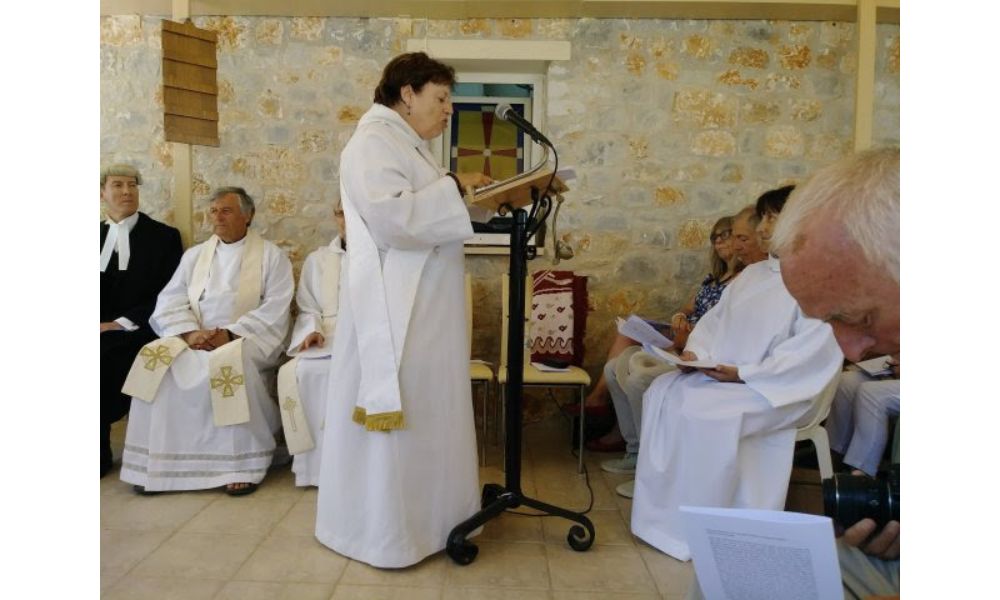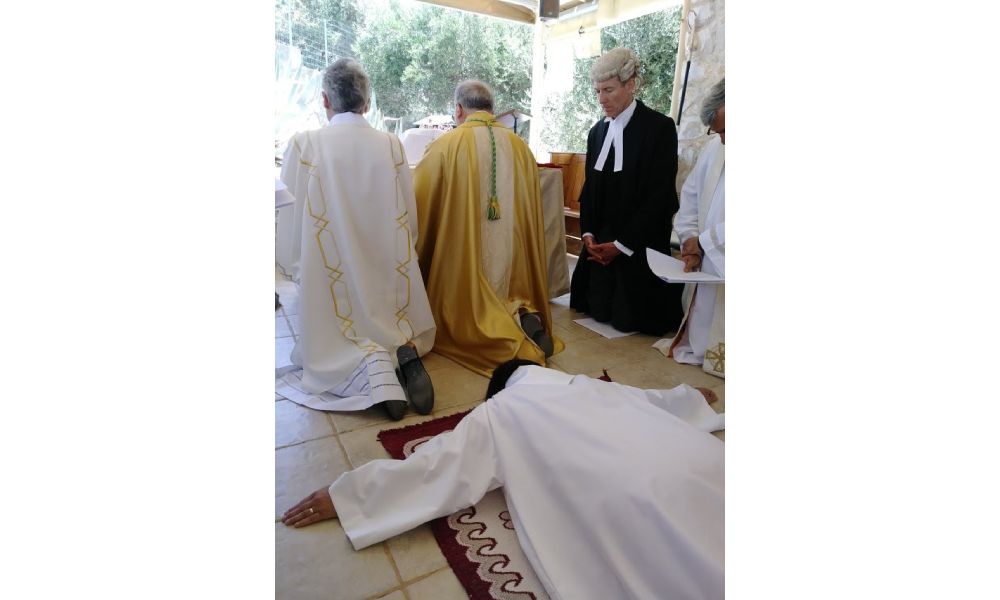Fr James Harris
‘I still have many things to say to you, but you cannot bear them now.’
Would that more preachers would heed these words, especially on a day like this – this Trinity Sunday on which we celebrate and explore the mystery that is God, Father Son and Holy Spirit.
Trinity Sunday – the culmination of a story that began last Advent and which will lead us back there again in due course. The Christ we anticipated then is now returned, risen and ascended to the right hand of the Father in heaven, where he ever intercedes for us, and from where the Spirit overflows into a thirsty and broken world.
This is the essence of the life of the God we worship: life-giving, mutually interdependent, engaged with his creation, listening, responding, loving.
I had a friend at theological college, called William, who lived for this season of the Church’s year, which we call Ordinary Time. The green season. It’s been a while since we last saw green. Before Lent, in fact and then, because of the vagaries of the calendar, only for a few short weeks after Epiphany.
We used to tease him but William was unmoved: he loved the sea of green which stretched almost unbroken through the Sundays after Trinity, all the way through to All Saints All Souls, Advent again.
He used to explain how he loved the ordinariness of life lived without big festivals and dramatic events, life lived in the daily overflow of the divine energy into the world. An extraordinary ordinariness. Divine wisdom and spirit engaging with the world by the wayside, at the crossroads, at the town gate – as our OT reading reminds us.
Humble, earthly, mortal life grounded in the soil of this bit of rock we call home, and yet life charged with the presence of God, hallowed by his footsteps, the promise of restoration hanging in the air, the soundtrack of Heaven playing on repeat in the background: holy, holy, holy.
Timeless ordinariness, which was and is and is to come.
Timeless extraordinary ordinariness.
You need a particular perspective, you need to be particularly observant, to notice that sort of simple ordinariness, because it’s so unexpected, so counter intuitive and altogether different from the extraordinary, complex tangle we’ve made of the world; the things we have decided are life-giving, or exciting, or divine.
One poet, Wallace Stevens, puts it this way.
Rationalists, wearing square hats,
Think, in square rooms,
Looking at the door,
Looking at the ceiling.
They confine themselves
To right-angled triangles.
If they tried rhomboids,
Cones, waving lines, ellipses –
As, for example, the ellipse of the half moon –
Rationalists would wear sombreros.
As humans we’re constantly trying to draw in rational, manageable squares when God creates in circles, or ellipses, or waving lines – shapes which are perfectly recognisable and intelligible, yes, but which stubbornly refuse to accommodate themselves into the square holes we would like to engineer.
The misterion – the icon – of the Trinity is just such an unsquareable circle. It is real, don’t get me wrong. I have no truck with those who suggest it’s just a metaphorical device, or that the depths of its mystery cannot be plumbed or explored.
Rather, in its reality, the mystery of the Holy Trinity is truly sacramental; in other words, it contains in recognisable, visible forms (parental and filial relationships, loving embraces, circular dances, waves of energy) an invisible, intangible, spiritual truth – and that truth is that God, even God, is intimately connected with the creation he has made in his image, through his Son who came and went about among us, through their Spirit who joins with them in the life-giving work of re-creation, restoration, redemption.
Dante, in Paradiso, the final part of his epic trilogy, describes a heavenly vision thus (in a translation by Alison Morgan):
In those depths I saw,
Bound with threads of love into a single volume,
Everything that is scattered through the universe;
Substances, accidents, flowing together
Into something like a simple light.
In the deep, clear substance of this light
I saw three arches, each of three colours,
One reflected from another like rainbow from rainbow
And the third seemed like fire, breathed from the other two.
And in the centre of this light, painted in its colours
I saw the image of our own human form.
I saw the mathematician struggling to reconcile
Square and circle, and failing to find the formula;
I wanted to define the image within the circle
Yet finding my mind, flightless, struck suddenly
By a flash of light and grace.
I fainted, overcome
But my mind and my heart were left turning
Like wheels in constant, even motion,
Powered by the love which moves the sun and other stars.
Circles, not squares. Rainbows in darkness. Humanity reflected in God. Trying and failing. Overcome but inspired by light and grace.
Ultimately, the truth of God the Holy Trinity is not a mystery to be explained but a reality to be lived. Every day in every circumstance, however ordinary.
Because God’s life is ordinary for us his children: the normative, ordered, sustainable way in which humanity will flourish and find its true self.
Ordinary life has been lived out in this place for close to 200 years now, as people have celebrated birth, fused families, committed souls to rest, joined in the worship of Heaven. Acknowledged the extraordinary ordinariness of God in the fruitfulness of the land and the changing of the seasons, the very passage of life.
Today, let us don a sombrero and rejoice in the privilege and the richness of a life lived in the extraordinary reality of God.




